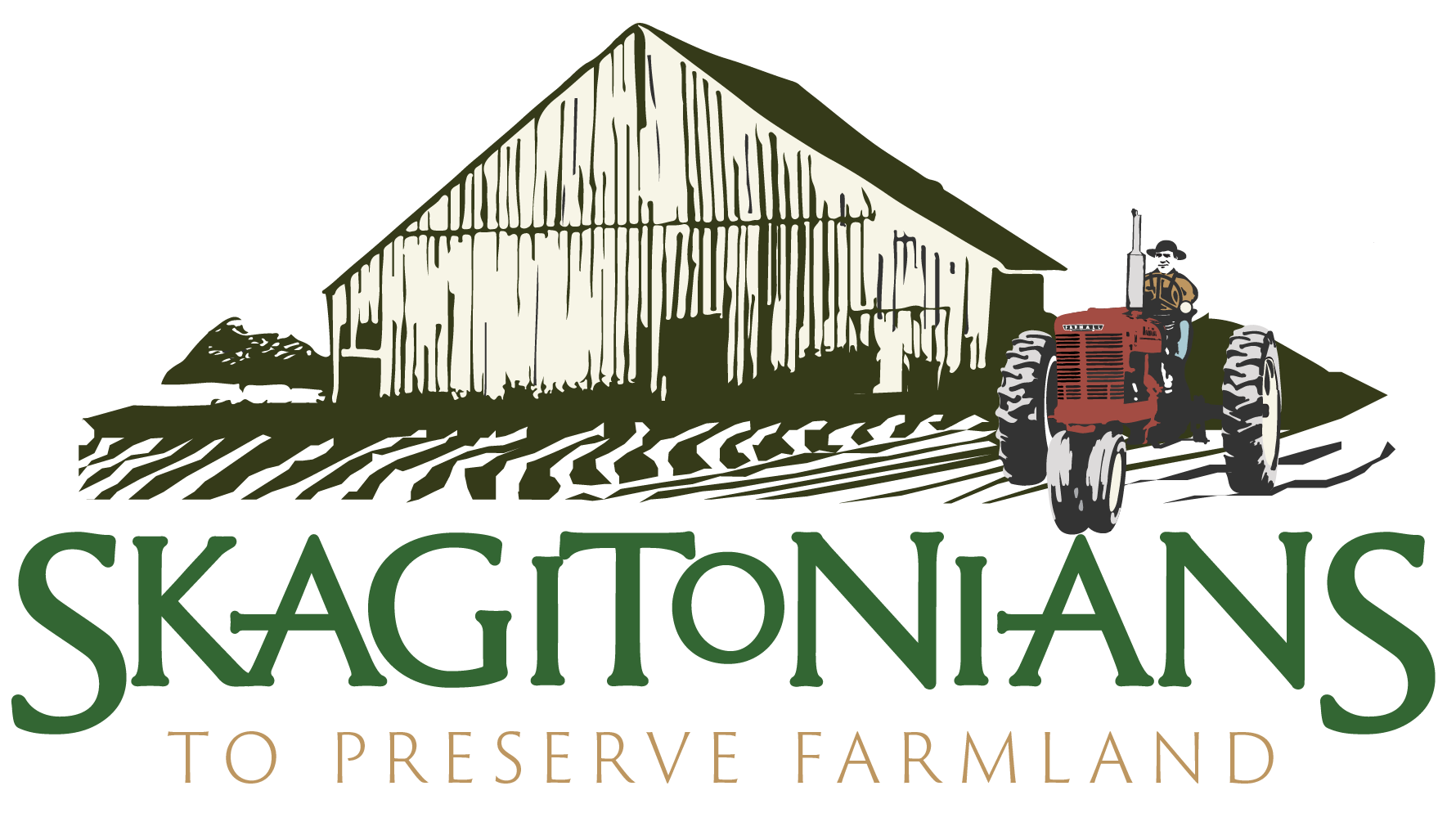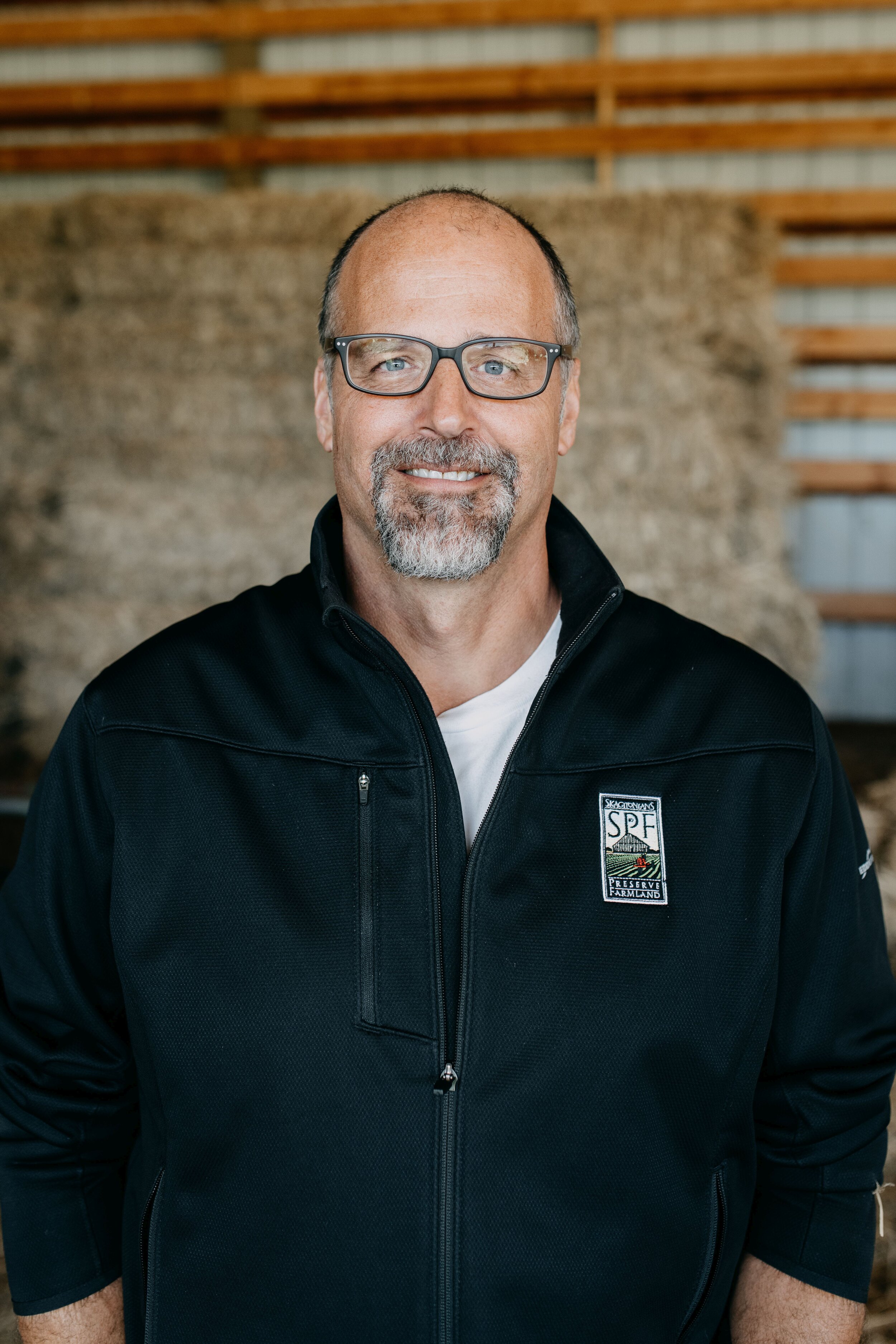From Allen's Desk
Welcome to From Allen’s Desk - a look at what’s happening in the world of Skagitonians to Preserve Farmland.
SPF’s mission of preserving farmland, while simply stated, is complex to carry out on a daily basis. Not only do we advocate for a sustainable agricultural industry, but also for multiple community values such as clean water, healthy salmon, and common-sense policies and regulatory structures that help to achieve positive outcomes for the community.
2020 has been different, to put it mildly. When the Governor’s order was issued in March and the world changed as we knew it, SPF, like everyone, had to regroup, take stock, and begin to figure out how to continue our mission in a largely virtual world.
WATER
Skagitonians to Preserve Farmland was asked to serve as one of two agricultural representatives on the Washington State Joint Legislative Task Force (Task Force) for water supply on the Skagit River.
We join Jenna Friebel of the Skagit Drainage and Irrigation Districts Consortium (Consortium) to help represent Skagit agriculture’s needs and concerns related to long-term water security as the Task Force begins its final stage of identifying the issues that will benefit from further study.
In addition to serving on the Task Force, SPF partners with the Consortium to facilitate a local agricultural water advisory group with the aim of identifying issues to bring to the Task Force.
Read about some of the issues related to the Skagit River’s Instream Flow Rule in SPF’s The Dirt.
AGRITOURISM
Agritourism is an important economic impact proposition to all scales of farms, and SPF remains at the forefront of this issue. We hosted two facilitated online community forums in July and August to hear from both farmers and non-farmers who are engaged in tourism activities or are impacted by and concerned about agritourism activities. The information we learn is shared with Skagit County’s Planning and Development Services (PDS) to be incorporated into their work as they prepare to undertake a comprehensive evaluation of the impacts of agritourism in the county, which will culminate in 2022 with proposed policy and code changes.
We’re pleased to report that as of late September, PDS has contracted with BERK Consulting of Seattle to bring additional expertise to the evaluation process.
FARMLAND LEGACY PROGRAM
SPF’s founders knew early on that protecting Skagit farmland and keeping agriculture economically viable would be a community effort. In 1996, after 18 months of advocacy by SPF and hundreds of community members and businesses, the Board of County Commissioners established the Skagit County Farmland Legacy Program (FLP), which currently protects over 11,000 acres of prime farmland, making it one of the most successful farmland preservation programs in the state.
We are proud to partner with this program. With support from our members, we have been able to help the FLP protect some of the most at-risk farmland along the I-5 corridor.
Earlier this year we shared that, with your generous support, SPF assisted FLP in purchasing the development rights to 45 acres of farmland along a busy state traffic corridor. VIVA Farms, an organization dedicated to training the next generation of farmers, now owns the farmland, ensuring they will hold it in perpetuity to help our next generation of farmers learn, grow, and integrate into the larger Skagit agricultural economy.
Unfortunately, two of our other projects we hoped to help Skagit County close this year have seen delays. One project we have been working on since 2015 is at the Cook Road Freeway Interchange just north of Burlington. This project, representing approximately285 acres of prime farmland, has been slowed down by the Trillium Corporation, the developer that sought in 1989 to build and operate an agricultural-themed amusement park there.
That proposal was ultimately rejected but Trillium retains a First Right of the Refusal to buy the land and has made demands which delayed the farmland protection project’s ability to move forward before the end of the year. SPF is working with the landowner and their legal counsel to resolve remaining issues with the Trillium Corporation. We are hopeful remaining issues will be resolved in the first quarter of 2021.
INFARMATION PROGRAMS
All of our traditional Outreach & Education programs had to be suspended for the foreseeable future due to the pandemic. We are continuing to explore creative solutions to meaningfully re-imagine these popular programs through next year and beyond.
One bright spot has been our new monthly Meet a Farmer blog, featuring articles by Tahlia Honea, an incredibly talented local writer. We bring the farmer and farm to you so you can learn first-hand, from their own voices, what it means to farm in the Skagit Valley today.
EMERGING ISSUES
SPF keeps an eye and ear out for emerging issues that directly and indirectly affect Skagit agriculture.
Amazon Receiving and Shipping Facility. In late September Skagit County—with little opportunity for public engagement—fast-tracked a 112,000 sq. ft. industrial building and 1,066 vehicle parking lot. The project was permitted in violation of Skagit County’s own storm water ordinance without addressing and mitigating impacts to critical agricultural drainage infrastructure. The Skagit Drainage and Irrigation Districts Consortium is currently lead on working with Skagit County to find resolution. SPF will be coordinating our response with the Consortium and impacted Drainage and Irrigation District.
Wildlife Damage. With the onset of winter, wildlife such as wintering waterfowl and elk seek out Skagit’s agricultural land for feed and forage. SPF continues to put forward ideas to support the Skagit Farm Bureau and others who are leading the effort to find mutually beneficial solutions to managing wildlife. Expanding wildlife populations can present challenges to crops, farmland, and rangeland, creating the risk of serious economic damage. Read our latest blog on elk management on agricultural lands.
2021 Legislative Session. The 2021 legislative session is gearing up and we are already tracking and working with several regional organizations and legislators on proposals related to climate change, pandemic relief, farmland preservation, support for drainage and irrigation infrastructure, salmon recovery, clean water, and growth management.
A THOUSAND CUPS OF TEA
In any given week, a majority of our effort is invested in meetings, especially with groups of similar—as well as competing—interests. Some groups SPF has engaged with over the past six months include:
· Drainage & Irrigation District representatives
· Washington State Department of Agriculture
· Washington State Conservation Commission Skagit County
· NOAA Restoration Office
· Washington State Department of Fish & Wildlife
· Washington State Farm Bureau
· Skagit County Farm Bureau
· Skagit County’s Farmland Legacy Program
· Skagit County Planning & Development Services
· Skagit County Public Works
· Skagit Valley Value-Added Agricultural Innovation Partnership Zone
· Skagit County Conservation District
· And numerous farms and farmers
2020 has thrown all of us a curve ball. But we are comforted to know that with partnerships, collaborations, and working together we are able to continue our work to protect Skagit Valley farming and keep it strong and viable well into the future.
From all of us at SPF, we hope and trust you and your families are and remain safe. To our farmers, ranchers, dairy families and farm workers: Thank you for your essential work and providing us with fresh local food.
With Gratitude,



